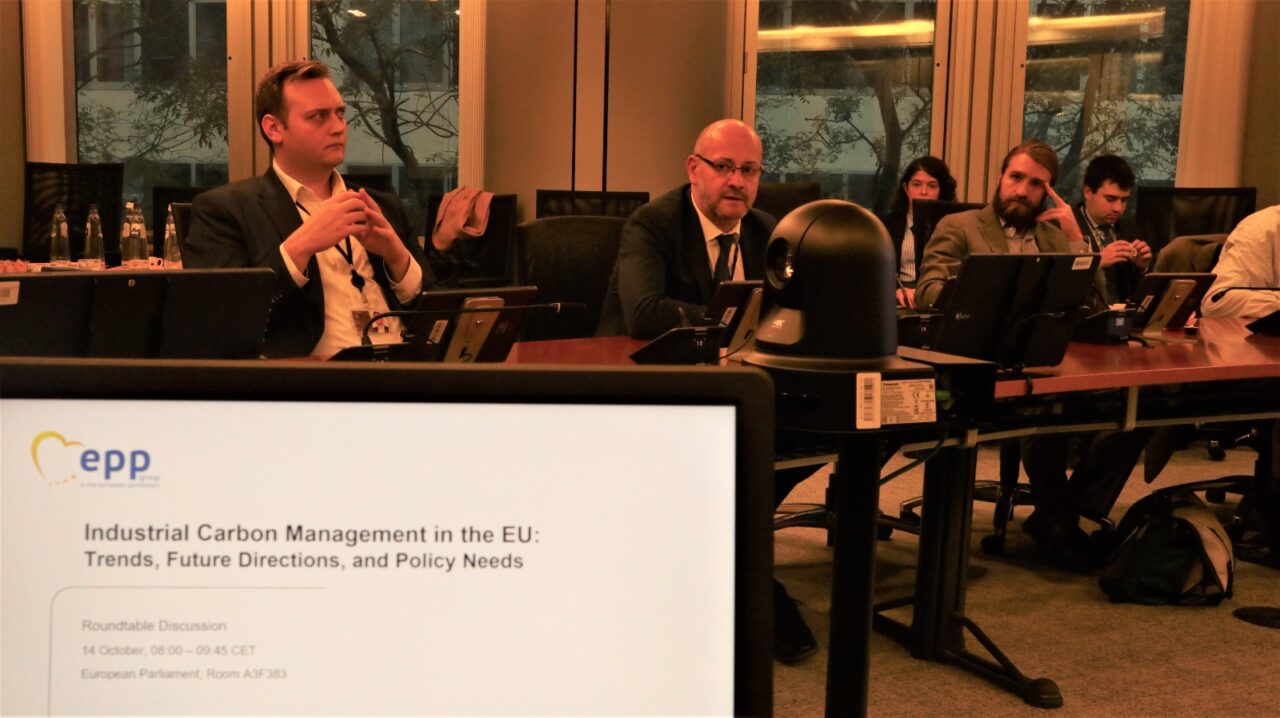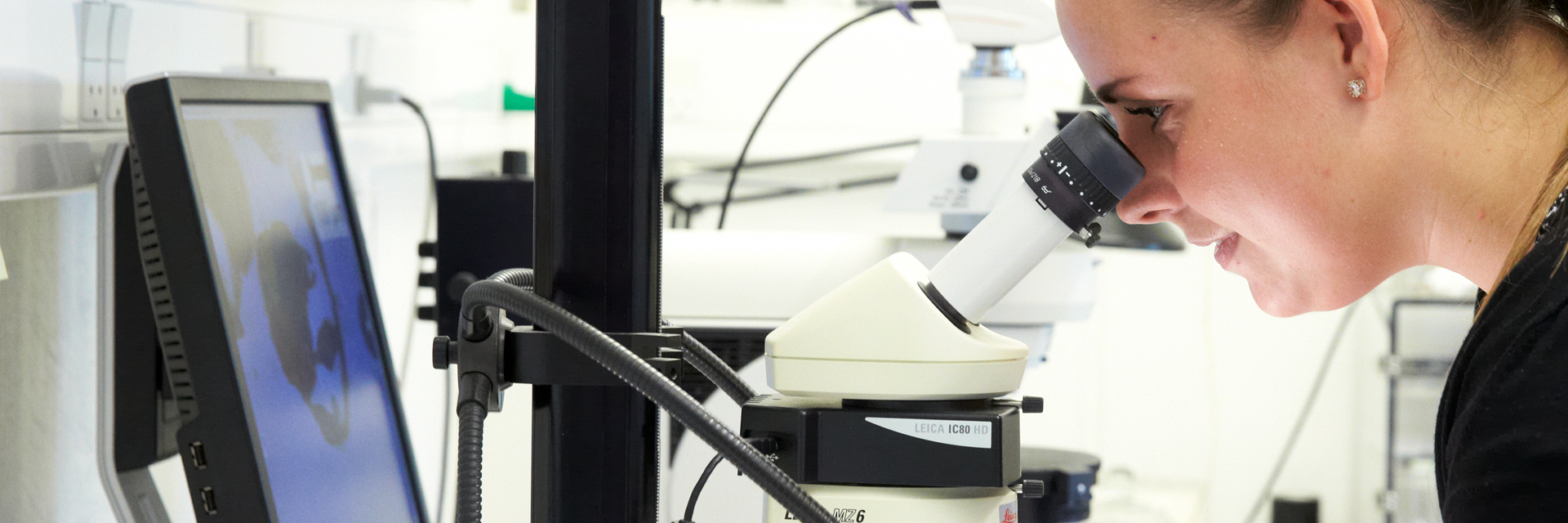Shaping Future CCUS and ICM Policy in the EU
The ConsenCUS project is driving innovation and policy alignment to accelerate Europe’s transition toward climate neutrality. By combining cutting-edge technology development with targeted policy research, the project contributes valuable insights into how carbon capture, utilisation, and storage (CCUS) and broader Industrial Carbon Management (ICM) can support the EU’s net-zero ambitions.
Why Policy Is Important?
Reaching the EU’s goal of climate neutrality by 2050 requires more than technological innovation. It demands coherent, forward-looking policies that enable large-scale industrial decarbonisation. Policy frameworks determine the pace and scale of deployment, unlock investment, and ensure that new technologies are implemented safely, efficiently, and with public support.
Within the ConsenCUS project, Energy Policy Group (EPG) plays a key role in translating technological progress into policy-relevant insights and recommendations. As an independent, non-profit think tank based in Romania, EPG leads the project’s policy research and stakeholder engagement. The organisation analyses how carbon capture, utilisation, and storage (CCUS) technologies interact with European and national policy frameworks, identifying barriers, enablers, and governance needs for large-scale deployment.
Through its work, EPG ensures that ConsenCUS not only advances technological innovation but also contributes to a strong evidence base for decision-makers across Europe. By connecting research findings with policy dialogue, EPG and its partners help bridge the gap between innovation and implementation, supporting the EU’s path toward a sustainable, competitive, and climate-neutral economy.
Policy Paper 1: CCUS Policy Considerations
The first ConsenCUS policy paper, authored by Energy Policy Group (EPG), introduces seven key policy considerations for effective CCUS deployment across Europe. It highlights the need for comprehensive frameworks addressing energy use, emissions accounting, infrastructure standards, innovation funding, and community engagement.
These recommendations underscore that CCUS policy must move beyond technological feasibility toward systemic integration—linking industry, infrastructure, and social participation in a net-zero future.
Webinar “Looking to Future CCUS Policy in the European Union”
Experts gathered online to discuss the evolving landscape of CCUS policy. Project manager Dirk Koppert (from project partner New Energy Coalition) moderated a discussion with Eve Tamme (Zero Emission Platform), Mijndert van der Spek (from project partner from Heriot-Watt University), and Luciana Miu (from project partner EPG).
Experts gathered online to discuss the evolving landscape of CCUS policy. Project manager Dirk Koppert (from project partner New Energy Coalition) moderated a discussion with Eve Tamme (Zero Emission Platform), Mijndert van der Spek (from project partner from Heriot-Watt University), and Luciana Miu (from project partner EPG).
The panel highlighted the urgent need for coherent strategies under the upcoming Carbon Management Strategy 2024, covering open-access CO₂ infrastructure, fair market design, and long-term targets for 2030 and 2040. Participants agreed that well-defined policy and investment certainty are essential for the large-scale deployment of CCUS technologies in Europe.
Podcast: EPG Talks – Episode 5 “CCUS, Narratives and the Truth Behind”
To further explore the findings of the first policy paper, EPG launched a podcast episode hosted by Ana Niculicea, featuring Luciana Miu. The discussion delved into public opinion and governmental approaches to CCUS in two project countries: Romania and Denmark.
Together, they unpacked “the truth behind the narratives,” examining how different national contexts influence the perception and acceptance of CCUS technologies.
Op-Ed: Stories of carbon capture, utilization and storage – dubbed in Romanian
In this short op-ed, we summarize our analysis of strategic narratives on CCUS in Romania in the 2020-2021 period, highlighting that original and informed opinions on CCUS are missing from the Romanian media, and a coherent stance from national authorities on the subject is almost entirely absent.
This may further delay the implementation of CCUS projects and their contribution to climate mitigatio
Op-Ed: Carbon capture, use and storage: a key element for Romania, but one that needs to be well thought out
The op-ed argues that CCUS can play a key role in Romania’s industrial decarbonization, but only if it is applied selectively, evaluated holistically, and supported by innovation, cooperation, and inclusive policy design beyond just regulation and financing. This Op-Ed is written in Romanian.
Op-Ed: How is CCUS Portrayed Across Europe?
Public perception plays a crucial role in the success of CCUS deployment. In a recent op-ed by Dr. Luciana Miu, published as part of ConsenCUS, EPG explores how CCUS is portrayed in Denmark, Greece, and Romania.
While North-Western Europe leads in deployment and public discourse, South-Eastern Europe is catching up, though often through more politicised or sensationalist media narratives. These “stories” complete with heroes, villains, and drama shape public opinion in ways that can either support or obstruct progress. The article calls on institutional actors to communicate transparently and base their engagement on evidence to sustain competitiveness and social acceptance.
Policy Paper 2: Advancing Industrial Carbon Management in the European Union
The second ConsenCUS policy paper explores how Industrial Carbon Management (ICM) can bridge the gap between innovation and deployment. It identifies five policy priorities to advance ICM in Europe:
- Support both emerging and mature technologies.
- Lower industrial energy costs.
- Increase funding flexibility for demonstration projects.
- Reward performance and balance technology trade-offs.
- Simplify bureaucracy and align funding with real-world needs.
These recommendations aim to empower policymakers to create a supportive environment for scaling industrial decarbonisation technologies.
Webinar “Future of Industrial Carbon Management in the European Union”
This online webinar brought together policymakers, researchers, and industry experts to discuss how Europe can coordinate policy and funding to enable ICM projects. From the North Sea to the Mediterranean while maintaining competitiveness and public trust.
Moderated by Dirk Koppert (New Energy Coalition), the event featured Eadbhard Pernot (Zero Emissions Platform), Tom Mikunda (Bellona Europa), Mijndert van der Spek (Heriot-Watt University), and Mihnea Cătuți (EPG).
The discussions concluded that institutional coordination and policy integration are essential for achieving Europe’s climate and industrial goals, ensuring that ICM technologies move from research to reality.
Podcast: EPG Talks – Episode 16 “Where Next for CCUS in Europe?”
As the ConsenCUS project nears completion, Episode 16 of EPG Talks revisits the project’s major learnings. Host Ana Niculicea and EPG experts explore the future of CCUS in Europe, reflecting on the project’s technological demonstrations, policy insights, and public perception studies.
The discussion reinforces that for CCUS to truly contribute to the EU’s net-zero targets, it must be strategically supported through research, development, and demonstration anchored in cooperation between Member States, industry, and local communities.
The episode also highlights open questions around funding models, carbon accounting, and community engagement mechanisms, setting the stage for further policy research by EPG and partners.
Policy Event in Brussels
At the European Parliament in Brussels, the ConsenCUS project took centre stage during a policy roundtable hosted by MEP Radan Kanev (EPP Group) and the Energy Policy Group (EPG). Representatives from DG CLIMA, CINEA, industry, and civil society gathered to discuss the future of Industrial Carbon Management (ICM) in Europe.
Dirk Koppert (New Energy Coalition) presented ConsenCUS’ policy findings, followed by a roundtable moderated by Mihnea Cătuți (EPG).
Key outcomes included calls to cut bureaucratic complexity, scale up innovation, and build public trust. Participants agreed that governments must create market demand and accelerate permitting, while industry should act with transparency and urgency to deploy proven technologies.
These collective efforts will help position Europe as a global leader in low-carbon industrial innovation.

Conclusion
Through policy research, expert dialogues, podcasts, op-eds, and stakeholder collaboration, ConsenCUS continues to build consensus on the future of Industrial Carbon Management in Europe. By aligning technological innovation with effective policy frameworks, the project supports the EU’s mission to achieve climate neutrality by 2050. Transforming research into action and ambition into impact.
